Most LED headlight bulbs are very dangerous! Not only are they not as bright as the original bulb, they scatter light everywhere and blind other traffic. So are there LED bulbs that do work? Let’s find out.
The Trusty Halogen
First up. How good can the original halogen bulb be? For this test, we used an Audi A4 projector Headlight from the 2001 – 2005 model.
Taking an H7 bulb in the dipped beam we can first show you how bright an upgrade bulb is. For this, we used the OSRAM Night Breaker Laser +130% against a boarded-up office window.
Excellent. Now to understand what makes this a good headlight we must label certain portions.
The Cut-Off
First up we have the cut-off. This is arguably one of the most important features of a dipped beam headlight and stops you blinding other traffic. Because this is a projector headlight it has a very defined cut-off. All dipped beam headlights have a cut-off but some are less sharp than others.
The Step
Then we have the step. The step is part of the cut-off and enables you to see further down your own side of the road without blinding the oncoming traffic. Because we drive on the left in the UK the cut-off is higher on the left. If this was a headlight unit from the rest of Europe or the USA the cut-off would be higher on the right.
The Hotspot
Finally we look at the hotspot. This is where the bulbs light is most concentrated and its position in relation to the cut-off is very important.
The job of a dipped beam headlight is to illuminate the road as far in front of the car as possible without blinding other traffic.
Often, people think a lot of light right in front of their car is a good thing, but it’s actually counter-productive. The closer the light is to you the more your eyes close up to compensate, then your distance vision is reduced. This is similar to the effect of trying to look out your window in the dark from inside your house with the lights on. It’s much easier to spot that thing outside with the lights off. For this reason some cars are wired to turn their fog lights off when the high beams turn on. Therefore we want the hotspot of the bulb to be as close to the cut off as possible.
To make the hotspot easier to see we’ll look at the light heat map. The red portions are the brightest and the blue/purple areas are where there’s little to no light.
So what’s the issue with LED then?
The Surge of LED Headlight Bulbs
Here we see an H7 LED headlight bulb for just £29.99 from Amazon or eBay…a bargain right?
But is it really that easy? For just £29.99 can you have 8000 lumens PER BULB? The short answer is no.
The lumen claims are normally “calculated” based on the voltage they are running and not actually measured. But it’s still not as simple as that. Lumen values are just a measure of the total light emitted, it gives no indication of where that light is going to end up in front of the car! You could have 8000 lumens from a bulb like that and none of it would end up on the road, as we’ll explain.
We’ll start with this, the common spotted “Cree LED Headlight”. It’s important to note that Cree as a brand don’t make LED headlights, they make LED chips for all applications, mainly household LEDs. Don’t get me wrong, Cree is one of the market leaders of LED chips, but in terms of creating an LED headlight that works, that is down to the lamp factory, not Cree.
The problem with this bulb is immediately obvious when you compare it to the original halogen bulb. It may have the same shape base on it as the halogen bulb but the similarities end there. Just look at the size of the LED chip (the yellow bit) compared to the filament coil of the original halogen bulb. The light is not going to be anywhere near the correct place. But let’s fit it and find out…
Oh, another fundamental flaw! Its’ giant size meant that it couldn’t physically fit in the opening of our projector headlight. That £29.99 bargain isn’t looking quite so great now!
This size issue will apply to 99% of projector headlights and is a very important first hurdle for LED headlight bulbs to overcome. You can’t use all of those extra lumens if the bulb won’t actually fit. This also applied to our other Cree “big chip” LED.
Eventually we found a headlight they’d fit in and this was the result…
This was a dipped beam headlight so there should be all the things we labelled. A cut off, a step, a hotspot. But none of it is there, just a big blob of “glarey” unusable light. This is simply dangerous and should be avoided at all costs!
So let’s move on to a style that’s actually considered beam pattern.
Things Can Only Get Better!
This is a new style and you can see the size of the LED chips have dramatically reduced and they are in the same place as the filament of the original bulb. This is the key to making these bulbs work. The place that the light comes from has to be in the same location; and the same size.
Headlights are very much designed to focus light from a point. If that point of light moves even slightly, in shape or size then the beam is distorted.
Even better, these bulbs claim 8000 lumens from each bulb too (it’s that magic 8000 number again). The head of the bulb is just about small enough to fit, so let’s see how bright they are:
Hmm, just to be clear, the camera’s settings were locked to the exact same exposure settings (I double and triple checked it!). This illustrates how pointless any kind of lumen claims the bulb makes. They can easily be pulled out of thin air.
With a direct comparison, you can see just how much dimmer the 8000-lumen LED bulb really is. We’ve also lost a decent hotspot and ended up with more light at the bottom.
You can see from the effect that you would end up with less distance vision and far less brightness overall. We do have a cut-off and step though, so that’s an improvement on the first ones we tried! Let’s see if we can get any better.
LED There Be Light (finally)
Next up, our H7 Twenty20 LED
Again we have some very small LED chips but also a smaller top portion and a smaller fan and heat sink. This means they will fit much easier into the back of the headlights and won’t get stuck on the bulb opening.
This time we’ve got a lot more light. No bogus lumen claims here, just a white bright light.
We’ve got far more of a hotspot this time than the 8000-lumen bulb. There’s a lot more light up and across from our cut-off.
Although the hotspot hasn’t got quite the same intensity as the original bulb, it’s wider giving you more width in your vision. The hotspot is also higher, placing the light in a more useful area of the road. Giving you more light all across your beam pattern with a pure white colour, these LEDs are a nice upgrade.
The Ultinon LED Headlight Bulbs
Last but definitely not least are the Philips Ultinon H7.
Philips owns most of Lumileds who produce LED chips, just like Cree. Philips saw the market for LED headlight bulbs and asked Lumileds to produce them an LED which is the same size as a halogen filament. That’s exactly what they did, then Philips filled in the gaps making the H7 Ultinon bulb. So what you’re seeing here is the original design, the blueprint if you will. Here is the output.
You can see it’s the brightest of the 3 with the most light at the top and the least at the bottom. If we use our effect we can see how the hotspot has fared.
It still has the same intensity as the halogen bulb, but is wider and higher up on the cut off! Meaning you get significantly better distance vision. There’s also more light to the sides and it sharpens up the cut-off.
With Philips clearly nailing the technology it begs the question, is LED the answer?
It depends. If your car holds its’ bulb in by a metal clip or a metal twist bracket then you’re fine. But a lot of cars these days (especially the VW’s) hold their bulbs in a more unique way.
Essentially slotting the tabs of the H7 into the holder. The LED bulbs don’t have tabs and therefore won’t be compatible with these holders, so it’s important to check your holder type before you take the plunge.
LED headlight technology has moved on in leaps and bounds over the last few years, but there’s still a lot out there to consider to ensure you actually get a decent upgrade. Make sure you do your research and don’t necessarily believe everything that’s claimed.
After all of our testing (and being in the automotive lighting industry for nearly 20 years) we can confirm that LED bulbs are not the brightest bulb on the market. At least not yet anyway.
LED is a progressive technology and while they are still up to 300% brighter than standard halogen lights, HID Kits are by far much brighter than any other upgrade bulbs available. You can find more information about HID bulbs in our simple car bulb guide (HID).
The technology surrounding LED bulbs still has quite a ways to go to be the absolute best however if you consider the fact that LED headlights can last 5 years longer than any other bulb type and they still produce a clean, white and 300% brighter light – they are definitely a force to be reckoned with.
Author: ABD.co.uk

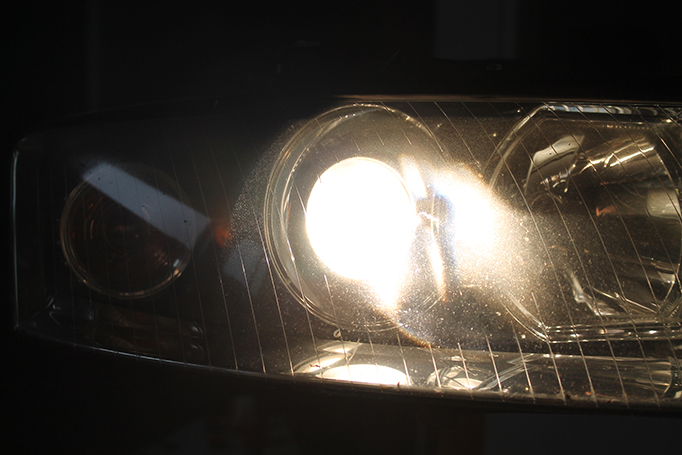
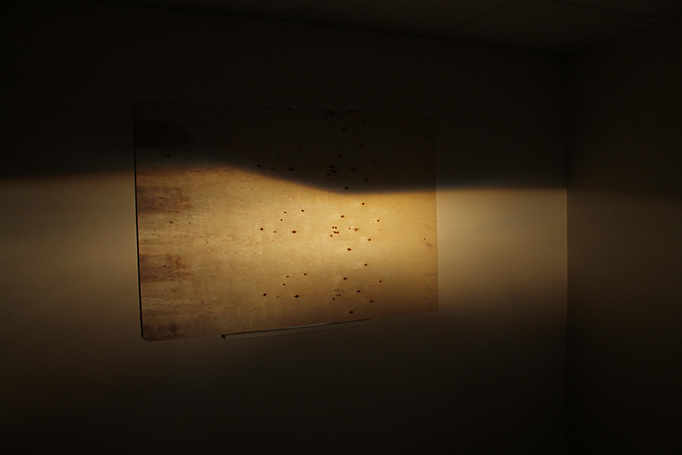
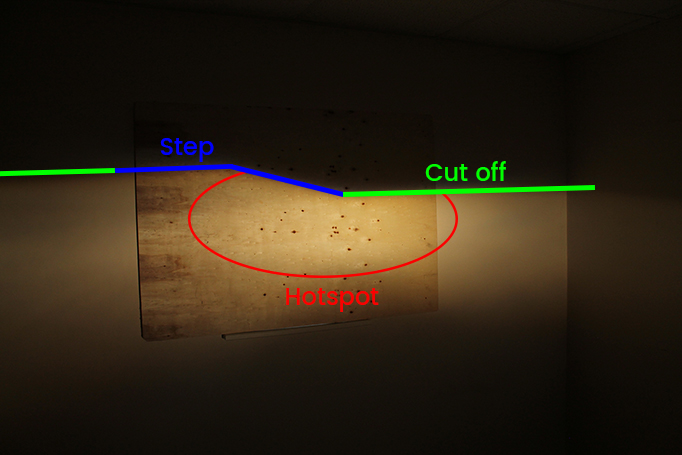
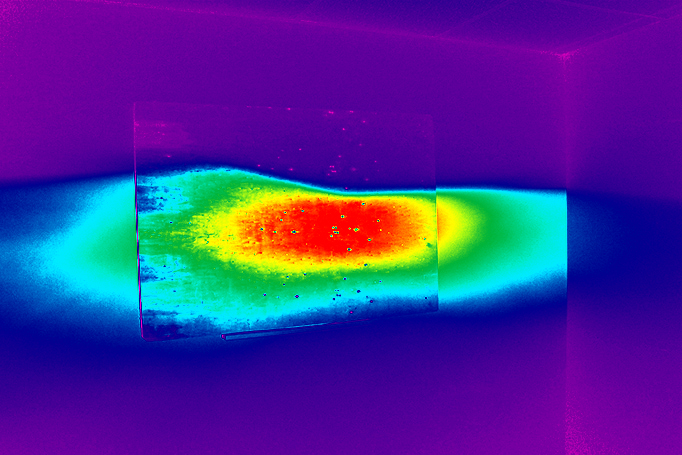
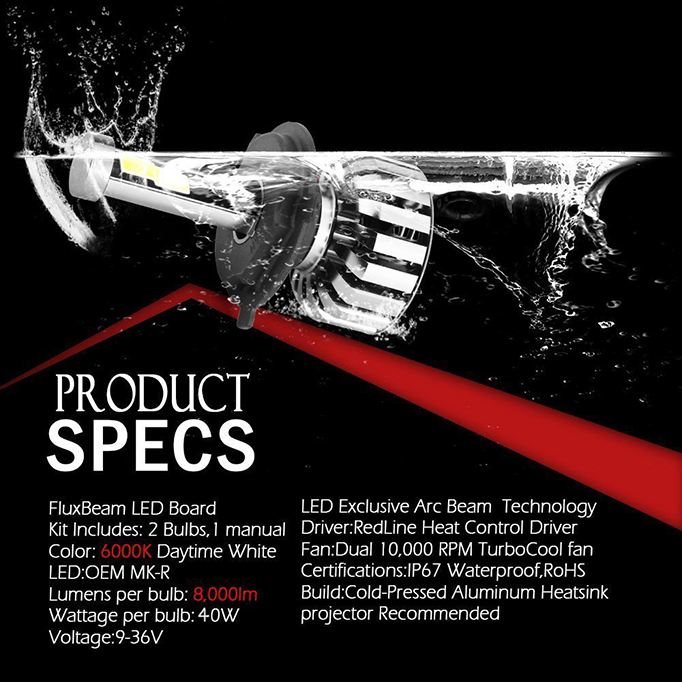
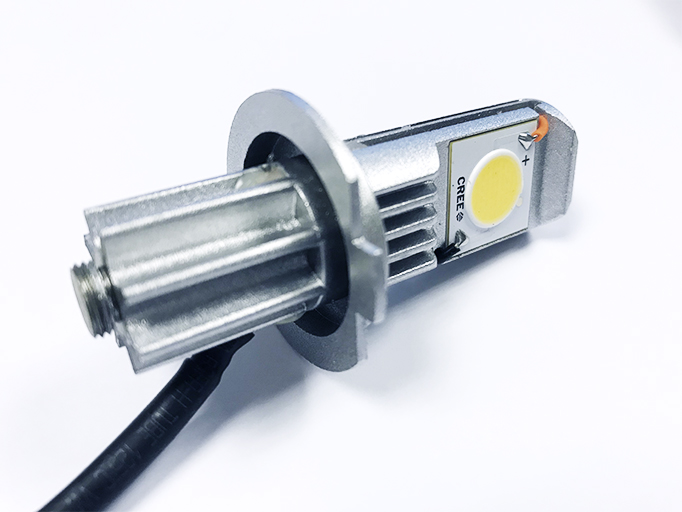
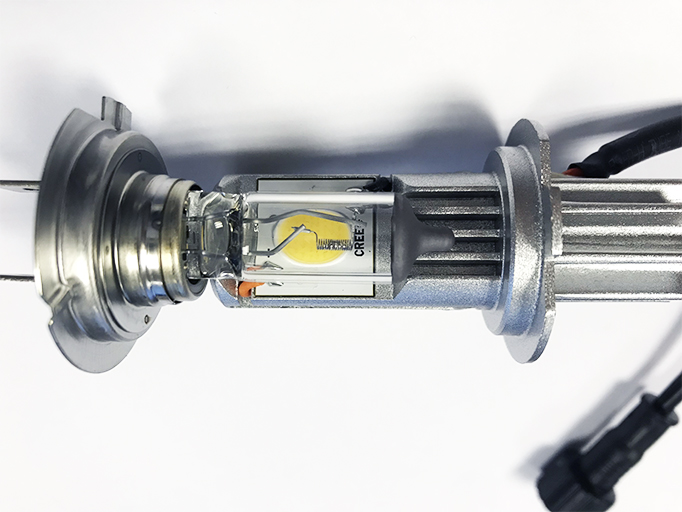
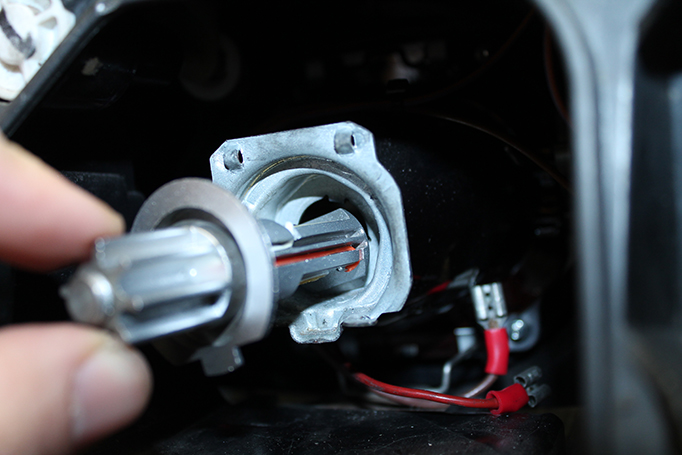
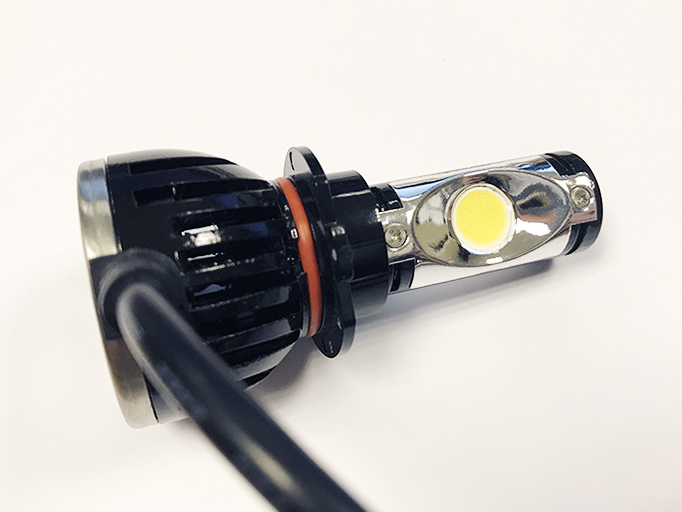
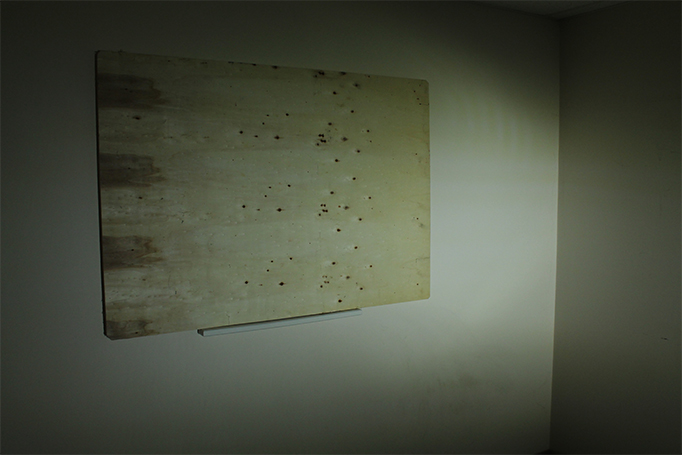
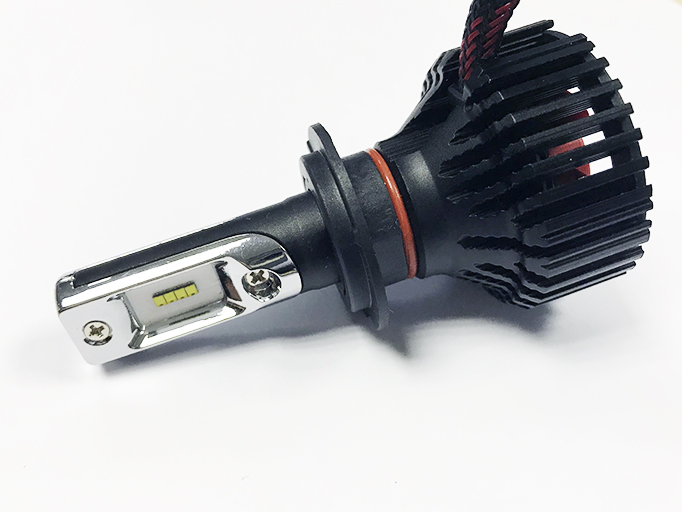
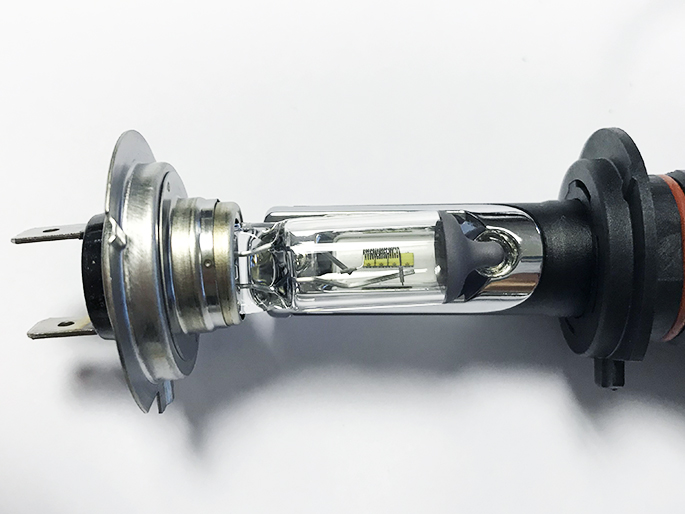
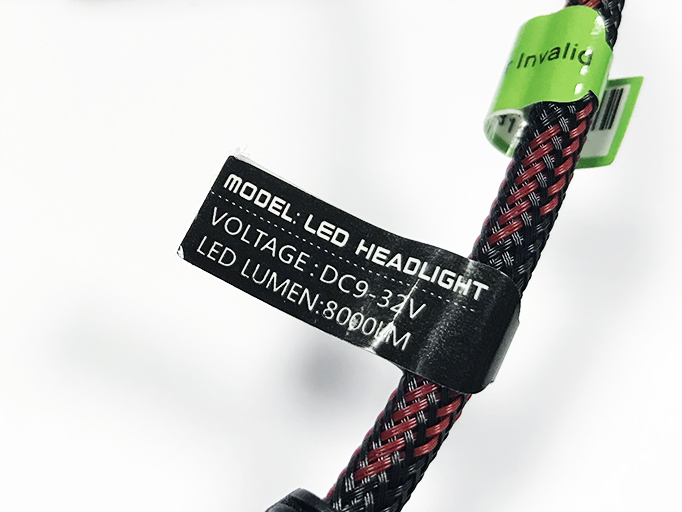
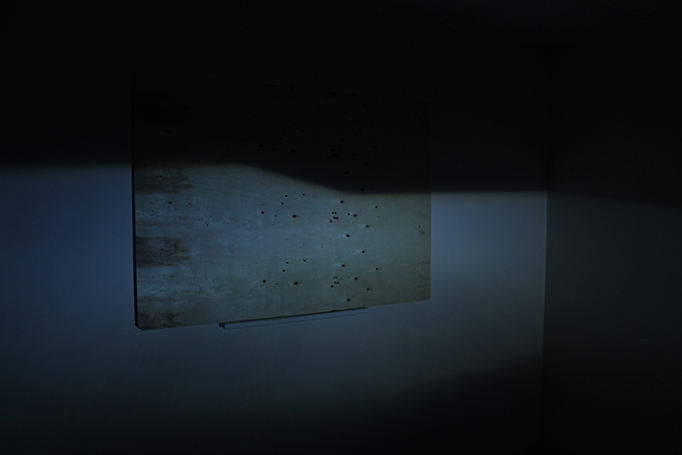
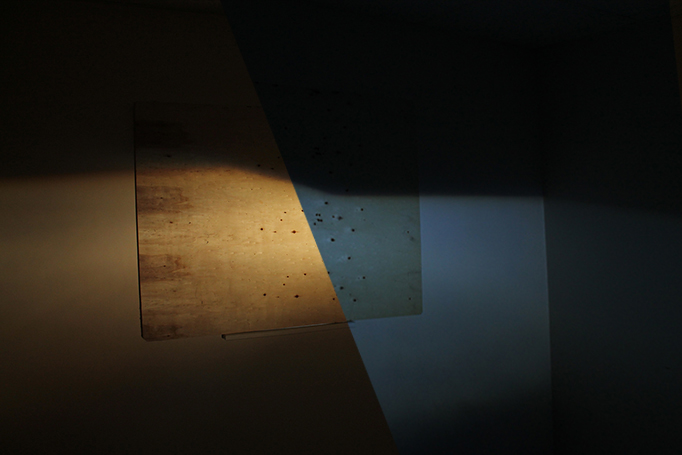
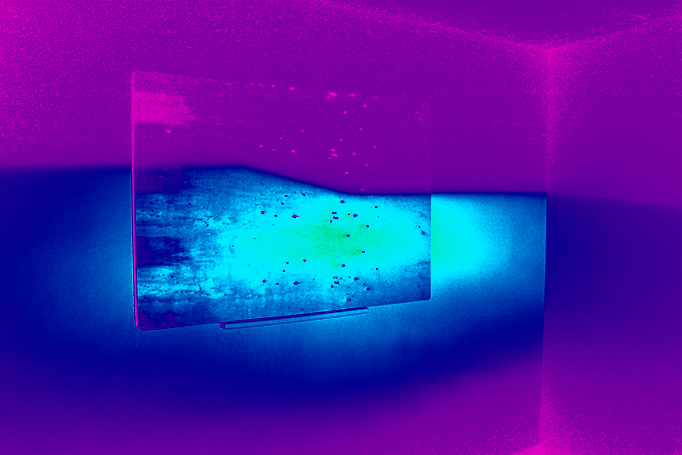
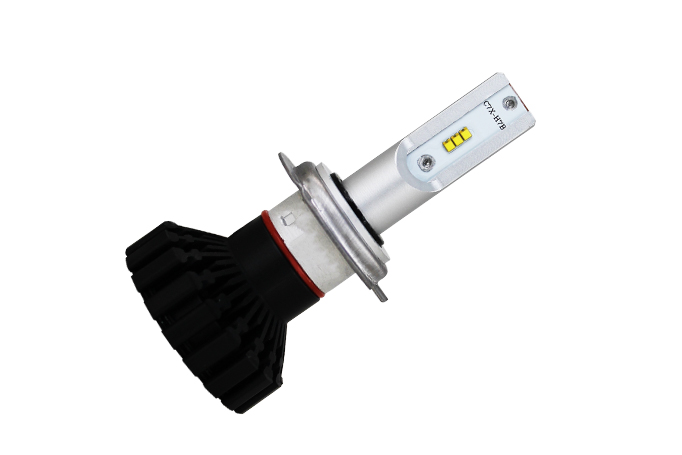
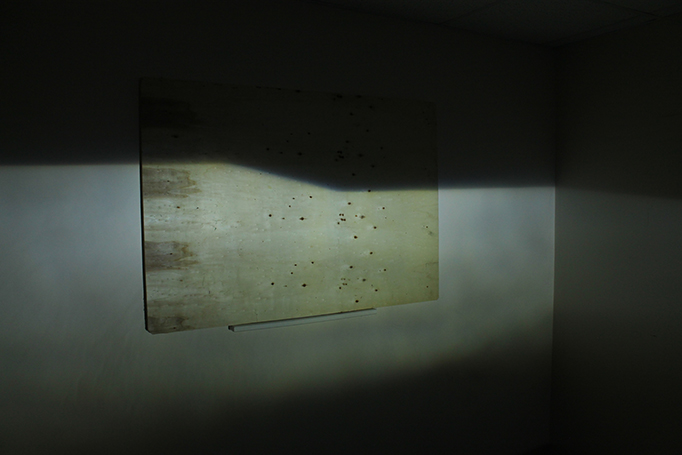
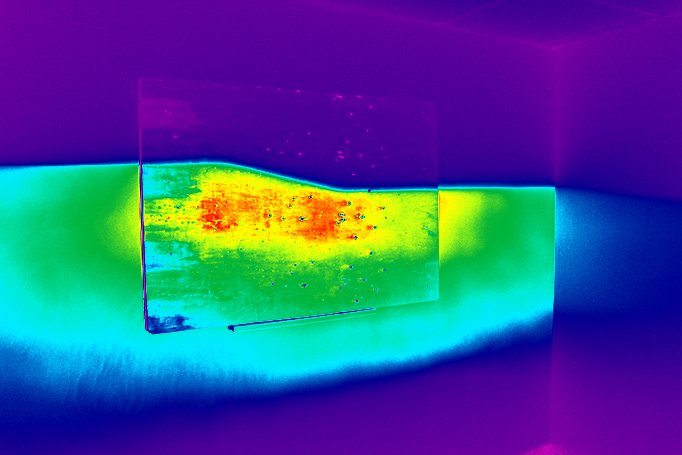
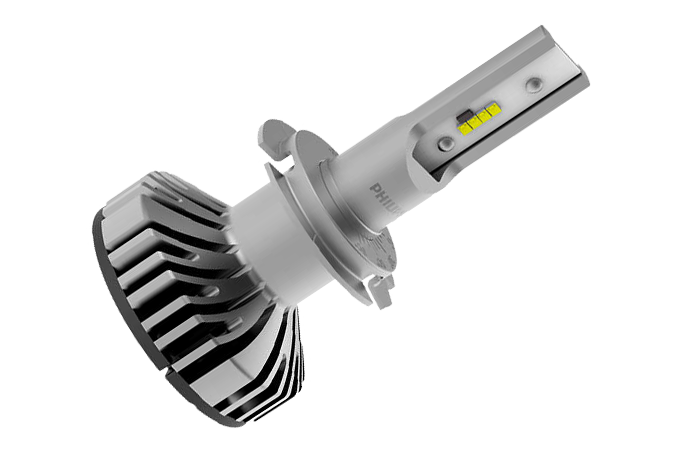
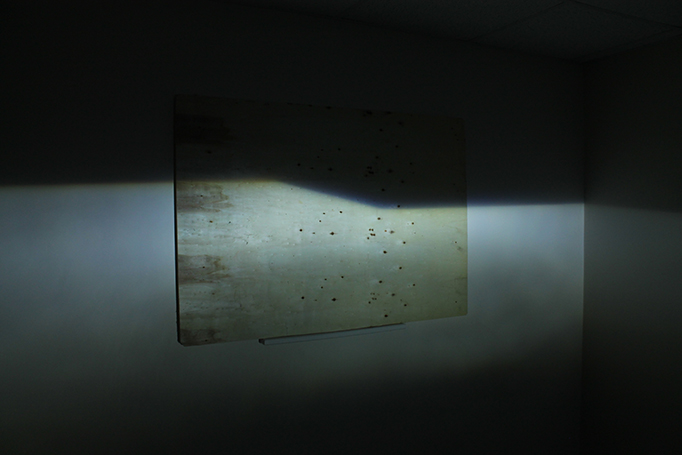
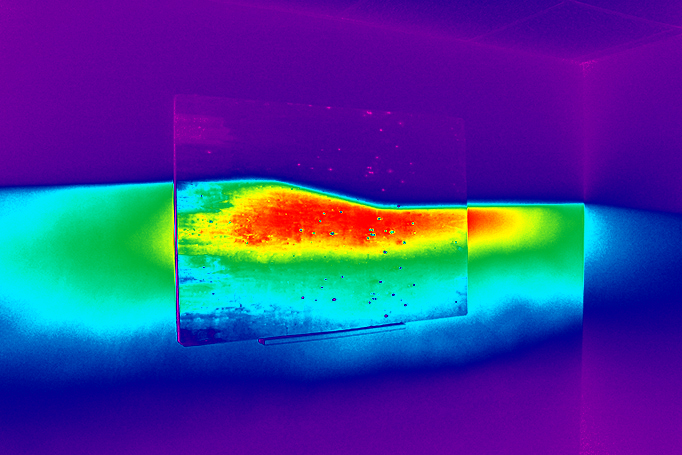
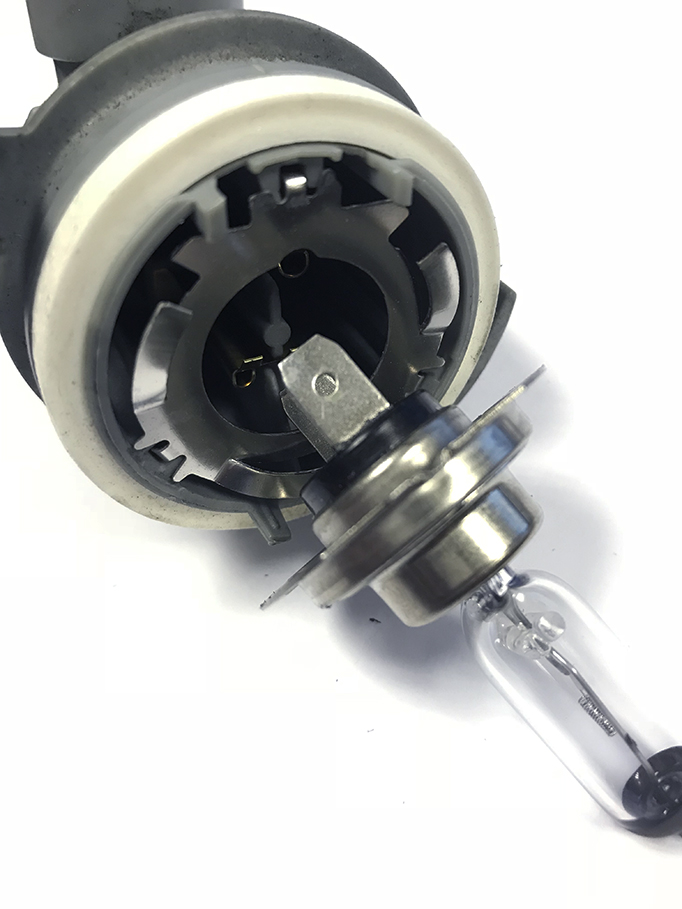
Brilliant and impartial analysis of LED Vs. Halogen. Just goes to show what rubbish advertisers claim for their led’s especially those on eBay. eBay should make a link to this site for all the advertisers mandatory so purchasers can make an informed decision. I’ll wager there are loads of led’s on eBay that are simply useless.
Excellent article. You make a great point about the importance of size and position of the LED chip, particularly as it’s demonstrated on the Cree examples. The part about the spurious lumen claims, based on voltage rather than measured output is also important.
Excellent alalysis, however this needs to be continually followed up. There is considerable differing designs of headlamps too and so many differing designs of bulb and fittings into the headlamps it might be interesting to compare reflector types and projector units. – and some car manufacturers seem to continuously produce their vehicles with poor headlights (with the same power useage!!).
I agree with your summing up of led bulbs 100% . I have tried 3 different types of these led H7 bulbs as the head beam and dims on my Kia ceed are poor to say the least.. None of the bulbs I tried could direct the light properly when installed into the lamp . Light was projected every where other than where it was supposed to be.. I ended up installing HID kit for both heads and dims.. A brilliant job… 5000K…55watt… Jim from rep of Ireland.
Thanks for Sharing this Blog!!!
i work on Porsche and some customers complain about the dim lighting on the 718 boxster model, which i must admit is correct, the vehicle in question is fitted with Phillips H7 5j11 12v 55 watt bulb this upgrade you talk about for the H7, how much more heat does this bulb throw out i ask because the lamp on this Porsche is mostly plastic with a plastic lens, will the upgrade cause any problems with the lens being plastic? thank you for your time regards ronnie
LED’s both consume less power than the halogen bulb and are more efficient so produce less heat. You will have less not more heat so it will not be an issue. I have uprated the Halogens to LED in my Porsche Macan (H7 and H15) and no issues. However, Many will give you bulb failure or flicker errors. The Philips don’t and work well.
lumen claim is calculated based on the voltage. Lumen values are just a measure of the total light emitted. it is an LED exclusive arc beam technology driver. It is good information. I have no knowledge about the LED Lumens. Your article read after that my clear all doubt.
I have a 1 Series BMW116D – the headlights and parking H6W lights are abysmal, with very little light where I need it along the road. I’ve had BMW Service check the headlight alignment and that is fine. I have Phillips H7s fitted, and Halfords H6Ws. The DLR permanent lamps are fine, but these are an aftermarket make. I’ve tried all manner of lamps with no real improvement.
As my car is an F20, run out 2014 late model, its caught between new and old tech in terms of lighting, and I don’t believe LEDs would fit without modification, which my insurers have advised against.
Any ideas for a Make / Type lamp I could try…?
Fully agree. Xenon is best replacement for halogen. But how does a projector lens led compare?
This was one of the best, unbiased reviews that I’ve read so far!! Put into layman’s terms and showing where the proper hotspots should be. I have Nighteye h4’s in my ’02 Acura EL and it’s made me take a seconded look. They’re pretty good,except for the fact that some people will give me a honk, presumably due to them being slightly blinded. So,after reading your article, I’ve made a decision to do some research on purchasing better LED or look into HID bulbs.
Thanks for putting this into a better way to see the differences between the different types of bulbs. Cheers,Chris F. from Victoria BC 🇨🇦
A very good read.. Now I’m more confused about which bulbs to put in my 2015 citroen DS5, dipped. I was going to get the leds.. Not so sure now. Do a lot of country side driving at night so requires a bit more light… What would you recommend.. Many thanks Lee.
Hid.. Only answer… 5000k..55watt.
so what is the best h11 led for my projector head light low beam nissan 2016 qashqai
Not a comment but info required please experts !
Have the top of range 2015 Jag xf and in my opinion headlights, certainly on high beam, are pretty poor and I appreciate I am never going to get xenon headlights for this model but which replacement ‘bulb’ would you suggest I get as a replacement in view of your comments above ?
Also could your choice be supplied and fitted by Halfords or does a Jag dealer have to fit ?
Pse email your response (as well as print here ok)
Thanks
Tried the Philips LED ultinon extreme in projector headlights. Lots of light, but the hotspot has suffered a bit. When releasing the speeder, the engine cuts off, and voltage drops below 13,2 V, and the light intensity drops very significantly. Upon speeding up again, the light comes back to high intensity. The unstability of the bulb makes it a no-go for cars that cut fuel upon coasting.
I wonder if the intermittent functioning of start stop on my golf blu motion (its only 3 yrs old bl**dy thing) would actually be helpful for use of the ultinons as when the engine stops, so has the car and one doesn’t want to blind the poor drivers behind or in front when you’re stuck in a queue of traffic e.g know annoying is when the buffoon in front doesn’t realise their car has a hand brake an holds the car, 15 cars back from the junction, on the main brake, shining a lovely bright red light in your peepers as you intermittently creep to the junction behind the lovely fella, bless him.
Talking of start stop, I wonder about battery durability with start stop. And also if the concept of start stop is about eco benefits, they really need to target taxi drivers on the side of the road and people in supermarket basement carparks leaving their engines turning over. A really basic message education campaign needed. But you don’t really see that sort thing of thing anymore do ya e.g green cross code etc. The Govs save a few £k on not running targetted ads and spends mega bucks on green projects…whadda mistaka da maka.
So with this conclusive result.. should I keep my HID kit I’ve been running for quite a while?.. I was thinking of replacing it with the Phillips ultinon H11 .. but here in the states is quite pricey. I also wanted to clear some of the clutter in my bay with the HID ballast and what not.
I currently have Phillips LEDs all around MY18 WRX all except my headlight bulbs so I was looking to transition from HID to their LED.
– miguel
At the moment LED is not quite up to the light output standards of HID. With HID you can get 300-400% more light than a standard bulb, whereas the Philips Ultinon will give up to 250%. If it’s pure light output you want, stick with HID for now. However LED is still excellent, will save space and last longer than HID so is still a great upgrade option.
Lol
I say stick with your hid. I’ve 55watt hid kit and wouldn’t even consider led bulbs.. Tried 2 different bulbs., One a four sided led chip… bright but transfer of light when installed was brutal… light every where but not where it should be…
I’ve got Xenons in my car as standard but the headlights in a Corsa D are better or any car that doesn’t have projectors. This is my third car with them and they border on dangerous in my experience.
I have a 2008 yamaha roadliner (motorbike) with halogen headlight globes. I’ve been trying led globes. I want no more than 50W so the wiring can stay the same. The globes have to be no bigger than halogen globes to be able to fit in the cramped headlight housing. I’m after a 9006 low beam and a H7 high beam.
What I’ve found so far is that the advertised 50W globes are only 10 to 15W and not much brighter than the halogen globes. And even if the led chips are the size of a halogen filament they aren’t placed in the exact same location (25mm from the base). So the light pattern is not per 9006 or H7 is supposed to be. On top of that the led globes cause the voltage regulator to shriek at low voltages (idle).
Finally! I’ve been looking everywhere for a good list of headlights that will help me to decide to pick the best one. Thank you for doing the effort of coalescing these. I agree with most of the listed above. I’ve been through on these and today and I was so happy to learn those things you mentioned. Thank you!
Interesting read, also the read on MOT’s concerning LED’s front and rear, I have fitted all LED’s from ABD on the rear of my 2006 R26 Renault Megane F1, MOT passed last year with all rear LED lights fitted, yes they are much brighter, I feel more safer driving, as prior standard Halogen light bulbs were not bright enough, had 2 rear end minor shunts where both drives said they didn’t see my brake lights. Since fitting the top branded LED’s, more driver’s stay well back, safe I would say and yes they are super bright. Driving in front and behind more high end cars and they obviously have standard LED lights which on some models I would say are blinding in rear view mirror and also oncoming traffic. This is a difficult one to advise what or who is correct on fitting LED lighting to a vehicle. It’s an open book at present in my opinion. All my front lights have Halogen bulbs fitted, projector lights and I am not 100% comfortable applying LED lights due to all I have read, also the fact changing front light bulbs on a Renault Megane 2006 hatchback is not an easy task.
God help all traffic in front of led light when its misty or water is on the screen of the vehicle in front. Light reflects off the drops at all sorts of angles creating a far more spreading glare, and that was “just” from halogen fog lights after it stopped raining – i know, but many drivers use their fog lights in the rain and blind the hell out of everyone, and the driver had forgotten to turn off their foglights when it stopped raining too. Now with leds, its nightmarish. Its like a fog all the time The led driver can see alright and sod the rest of em. I think the authors made a good observation about seeing in the dark. High contrast blocks your vision into the dark spots. And superbright hot spots can blind others as well create high contrast for you. You wonder if the design of bulbs needs reworking to lower the beam and project it further forward in kind of low wider cone extending forward but not up. The height of projection is half the problem.
Hi..